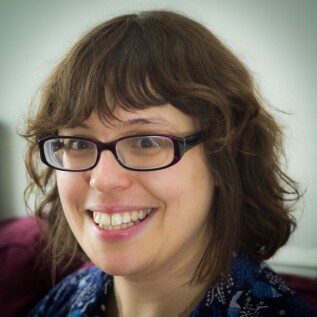Continuing our 'meet the team' blog post series, we speak to one of our newest members, Dr. Anna Liddle, about her research on the project.

Hi Anna! Would you mind briefly introducing yourself for our readers?
I am a Research Fellow at the University of Leeds working on the Speaking Citizens project. I also teach at the University of York. I previously worked on The Deliberative Classroom project, exploring classroom discussion. My PhD was on how schools teach about peace and war. Before this, I was Peace Education Officer for the Campaign for Nuclear Disarmament.
Thanks! Could you say a little bit about your involvement in the project?
The communication skills of young people are an important topic to investigate. This extends beyond the classroom and into the out-of-school life of young people and the working lives of those who have left school. In this strand of the Speaking Citizens project, I shall be working with two groups: a youth council and young trade unionists. The youth council are 13-18 years old and the trade unionists are young adults up to 27. This will provide the opportunity to further understand the creative communicative practices of those either side of what many may consider an arbitrary divide into adulthood.
On the topic of the communication skills of young people, how do approach oracy in your work and what does this concept mean to you?
To me, oracy in education should be about empowering young people to use their voices in society - to critically discuss issues that are happening around them and to have the ability to advocate for themselves and others. Oracy should also be about recognising and celebrating the creative skills used by young people when they communicate. In the research I am doing, I am seeking to understand how both groups use their skills and whether they encounter challenges in their communication practices.
It sounds like oracy education is very relevant to contemporary society then!
Yes, oracy education is important because equips students to play an active part in a democratic society. It encourages them to engage critically with contemporary issues and also understand and respond to the views of others. It provides them with the skills to navigate societal systems and communicate their needs. These skills are necessary not just during the school years, but beyond. In a socially unjust society such as our own, some voices are often not heard, and oracy can help bring out these voices.
Interesting! What kind of outcomes do you hope the project will have?
I hope that this project will have several outcomes. Firstly, I hope that our publications and other outputs will allow the voices of the young people with whom we are working to be given a platform and be heard. When talking about speech education, it is essential to have the voices of those who it will impact (or who have had a recent experience of school) represented. Secondly, it will be great to have data of language in action to gain a deeper understanding of young people’s communicative strategies and share that with other young people and practitioners. Finally, the research should be able to provide some rich data that will be of interest to policymakers and other researchers who may wish to take this further.
Finally, one last question, what are your research plans for the next six months?
Over the next six months I shall be collecting data from my interactions with the two groups. In this strand, we are using ethnography which means I shall be ‘hanging out’ with these young people. For the youth council, I shall be observing their debating groups to see how they make their voices heard in relation to civic issues. With the young trade unionists, I shall be attending their meetings, events and conferences to understand the communicative challenges they may face, how they talk about these and the solutions that they consider.
Next week, we conclude our 'meet the team' blog series when we meet Dr. Cassie Kill.

